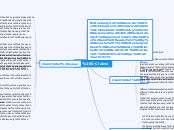af Spencer Stange 6 år siden
288
CR 5-Claims
Understanding claims involves distinguishing among claims of fact, policy, and value. Claims of fact assert the existence of a condition based on evidence, while new data can alter their interpretation.

af Spencer Stange 6 år siden
288

Mere som dette